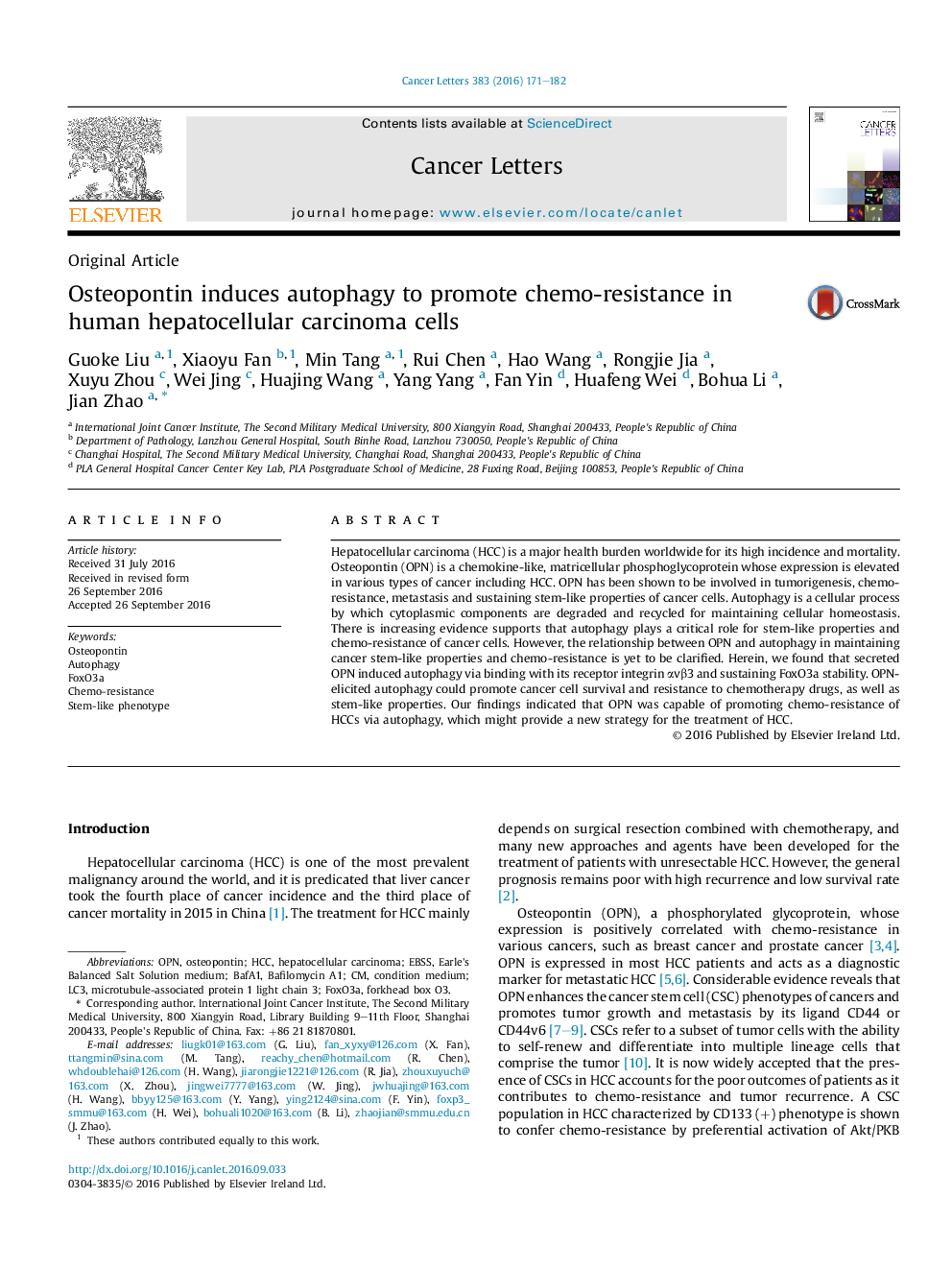| Article ID | Journal | Published Year | Pages | File Type |
|---|---|---|---|---|
| 5525453 | Cancer Letters | 2016 | 12 Pages |
â¢Osteopontin (OPN) induces autophagy in hepatocellular carcinoma cells (HCCs) in vitro.â¢OPN enhances autophagy via binding with integrin αvβ3 receptor and sustaining FoxO3a stability.â¢OPN promotes chemo-resistance and cancer stem cell-like phenotype of HCCs through autophagy.
Hepatocellular carcinoma (HCC) is a major health burden worldwide for its high incidence and mortality. Osteopontin (OPN) is a chemokine-like, matricellular phosphoglycoprotein whose expression is elevated in various types of cancer including HCC. OPN has been shown to be involved in tumorigenesis, chemo-resistance, metastasis and sustaining stem-like properties of cancer cells. Autophagy is a cellular process by which cytoplasmic components are degraded and recycled for maintaining cellular homeostasis. There is increasing evidence supports that autophagy plays a critical role for stem-like properties and chemo-resistance of cancer cells. However, the relationship between OPN and autophagy in maintaining cancer stem-like properties and chemo-resistance is yet to be clarified. Herein, we found that secreted OPN induced autophagy via binding with its receptor integrin αvβ3 and sustaining FoxO3a stability. OPN-elicited autophagy could promote cancer cell survival and resistance to chemotherapy drugs, as well as stem-like properties. Our findings indicated that OPN was capable of promoting chemo-resistance of HCCs via autophagy, which might provide a new strategy for the treatment of HCC.
